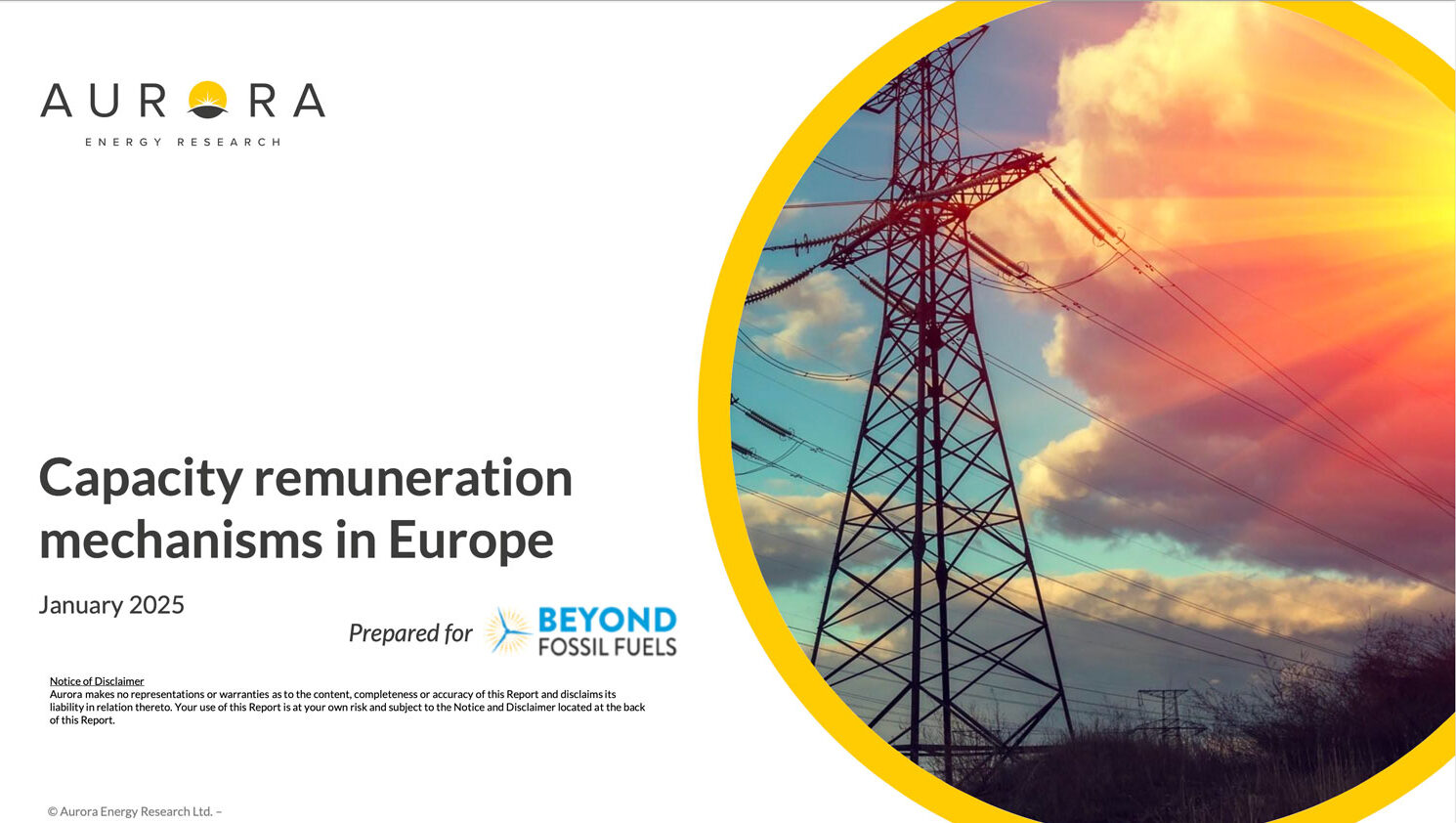28 January 2025
Capacity markets have awarded over €50bn to fossil fuel assets since 2015 — almost triple of that allocated to clean flexibility
Download Report Download Gas Plants DatabaseCapacity remuneration mechanisms in Europe is a report from Aurora Energy Research, commissioned by Beyond Fossil Fuels. It finds that since 2015, European capacity markets have allocated nearly €53 billion to fossil fuel power plants—almost three times the funding awarded to clean flexibility solutions. The study shows that capacity markets have provided contracts to almost 200 gas-fired power plants, including around 30GW of new-build gas plants. Contracts for these new-build plants stretch into the 2040s, including in countries committed to decarbonising their power systems by 2035 or earlier. These investments risk locking Europe into fossil fuel dependence. The report recommends that capacity markets are designed to incentivise clean energy investments like storage, demand-side response, and interconnectors to meet climate targets.

